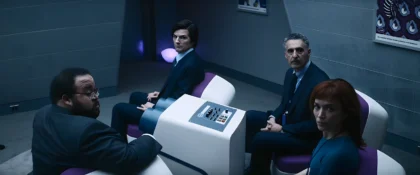At first glance, Severance may seem like just another psychological drama with a minimalist office aesthetic. But the Severance series criticizes work in a way that plants conflicting thoughts about our relationship with our jobs — especially if you’re the kind of person who tends to overthink.
That’s because, more than telling a good story, the Severance series criticizes work in a deep and symbolic way, exposing what many companies prefer to hide.
And if you work at a traditional company, your boss probably won’t be thrilled about it.
Here are 10 reasons why watching Severance might make upper management squirm.
1. You start questioning the boundary between “personal life” and “professional life”
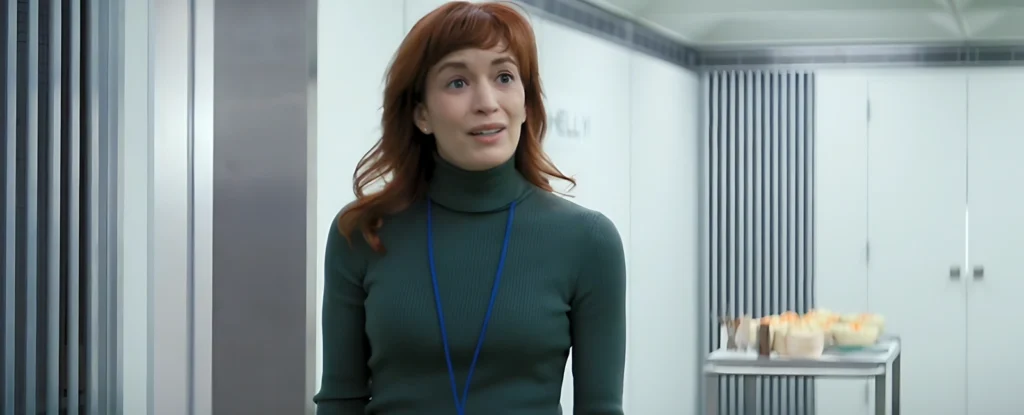
Well, every time you find yourself here, it’s because you chose to come back.
— Mark Scout
The show takes the idea of separating your work self from your personal self to the extreme — literally.
But over time, what first appears to be a clever solution for balance becomes a sharp critique of corporate models that demand sacrificial personas in the name of productivity.
2. It exposes the culture of control hidden behind “organizational environment”
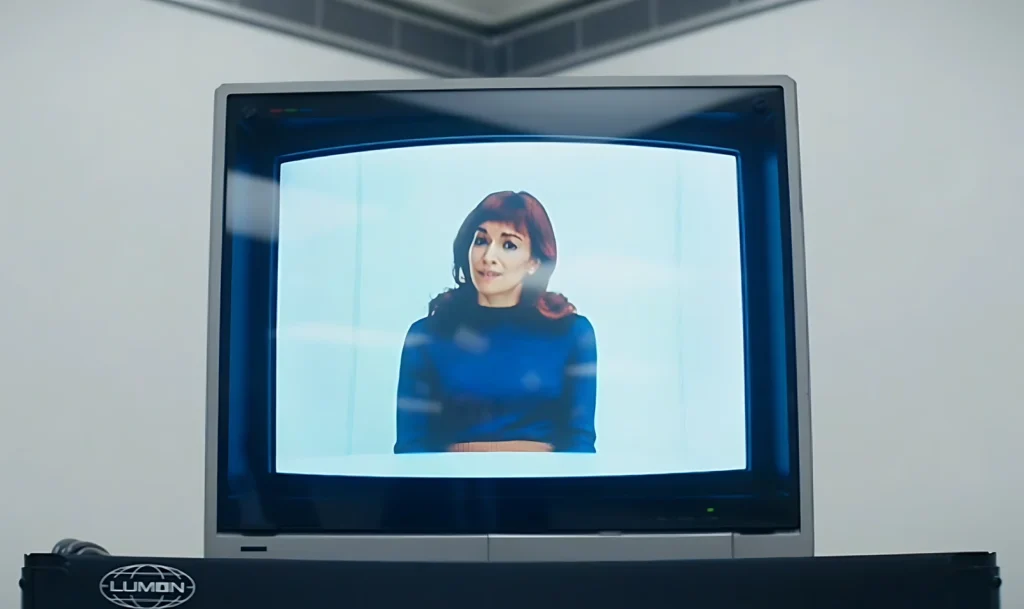
I am a person. You are not. I make the decisions. You do not.
— Helena
Codes of conduct, minimalist rooms, motivational speeches, symbolic rewards…
As the series unfolds, all of these elements start to feel eerily familiar.
However, in Severance, the dystopia is not hidden — it’s clearly on display. Consequently, it may lead you to realize that in the real world, it’s just better disguised.
3. The idea of the “company as family” becomes nervously laughable
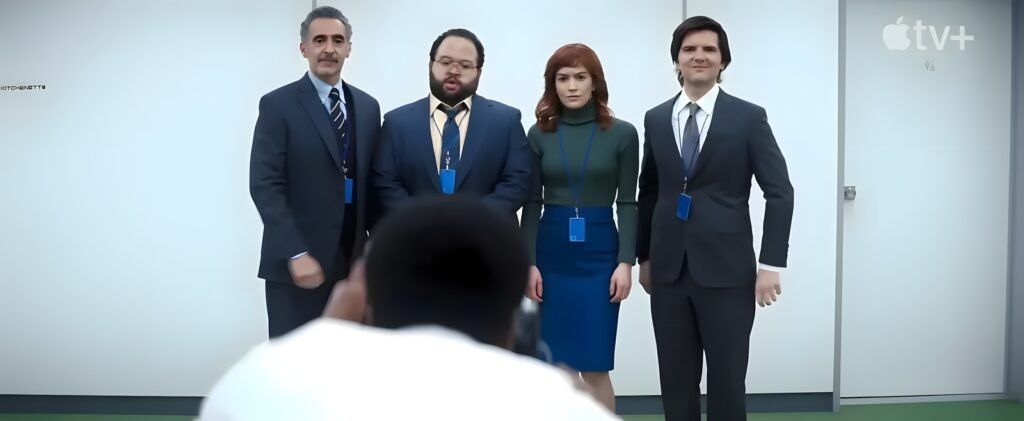
Lumon demands blind, almost religious loyalty.
Before long, it becomes clear that when a boss says “we’re like family here,” it might come with obligations you wouldn’t even have toward your real family.
4. Office perks start to lose their charm

The Music Dance Experience is officially canceled.
— Seth Milchick
Events like the Waffle Party, the Defiant Jazz, and the wall of photos show how corporate rituals can be used to mask an oppressive atmosphere.
From this perspective, even the happy hour may feel like part of a programmed choreography.
5. The word “purpose” starts to sound suspicious
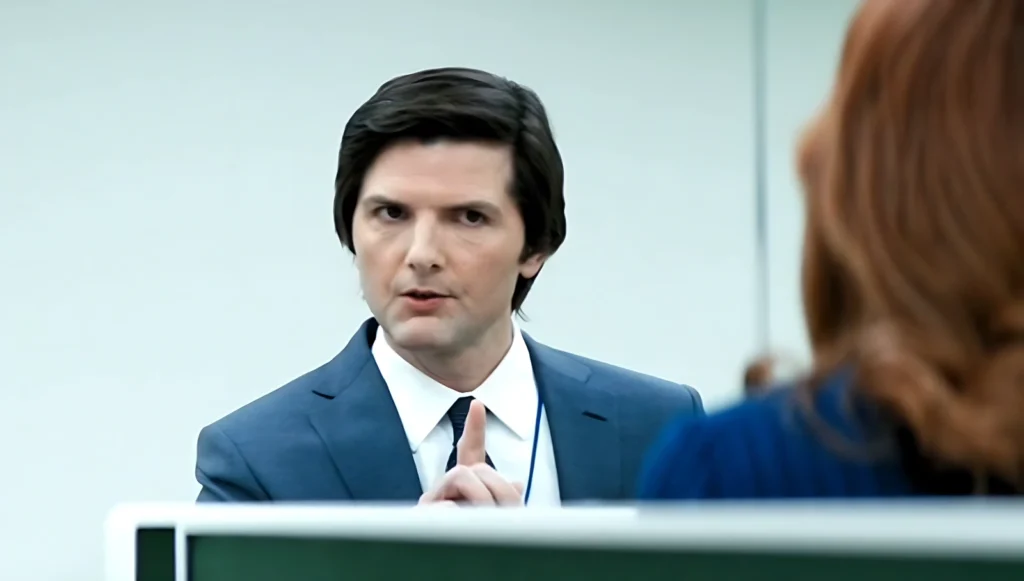
The work is mysterious and important, and we deal with the uncertainty it brings us… together as a family.
— Mark Scout
So what exactly is the purpose of your work?
In Severance, not even the employees know what they’re doing — and the company prefers to keep it that way.
After just two episodes, you might find yourself rolling your eyes at PowerPoint slides about “mission and values.”
6. The office aesthetic begins to feel deliberately alienating

Hell is just the product of a morbid human imagination. The bad news is whatever humans can imagine they can usually create.
— Ms. Cobel
Endless hallways, white lighting, standardized furniture.
Suddenly, your own office no longer feels neutral — it starts to resemble a silent reminder of surveillance and conformity.
7. HR starts to look like a branch of the manipulation department

If you want a hug, go to hell and find your mother.
— Harmony Cobel
After seeing what Ms. Cobel does under the label of “Human Resources,” it becomes harder not to view some real-life HR actions as subtle tools of emotional control.
8. You realize autonomy might be an illusion
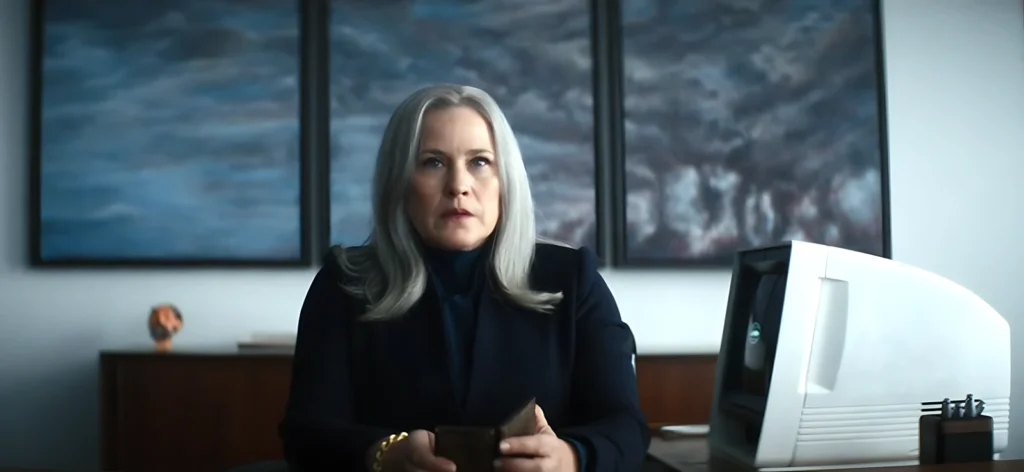
The surest way to tame a prisoner is to let him believe he’s free.
— Harmony Cobel
In the real world, employees often feel they have freedom. After all, they chose to be there and accepted the rules in exchange for a job.
However, that freedom is often relative. In many cases, life circumstances are what pushed them into that role.
In Severance, the absence of choice is even more obvious. The innies have no decision-making power. They just follow orders — without even knowing who they are.
9. The series fosters empathy for those you usually overlook

I am certain you will remain with me in spirit, in some deep and yet completely unaccessible corner of my mind.
— Burt
By following the journey of the “innies” (employees in severed states), Severance humanizes even the most overlooked office figures.
As a result, it might make you rethink how you treat your colleagues — and how you’re treated in return.
10. It makes you imagine a world where work doesn’t define who you are

Our job is to prove we’re people, not just parts of a machine.
— Ricken
This may be the most dangerous idea of all.
Because if you start to see work as just one part of your life, and not its center, you may start wanting change.
And from your boss’s perspective, that might be completely unacceptable.
Conclusion
If you haven’t watched Severance yet, go ahead — but consider this a warning: this show might permanently change how you view your job.
After all, the Severance series criticizes work so sharply that you may never look at corporate life the same way again.
And if your boss asks what you thought… it might be safer to just say it was “interesting” and change the subject.
Discover more Severance secrets on this themed page
- All About Severance – Revelations, secrets, and in-depth analyses
- Lumon and Transhumanism: The True Goal Behind Severance
- Or check out the post: Severance Series Explanation – Apple TV+: Secrets and Everything Else
Posts Recomendados
Carregando recomendações...


